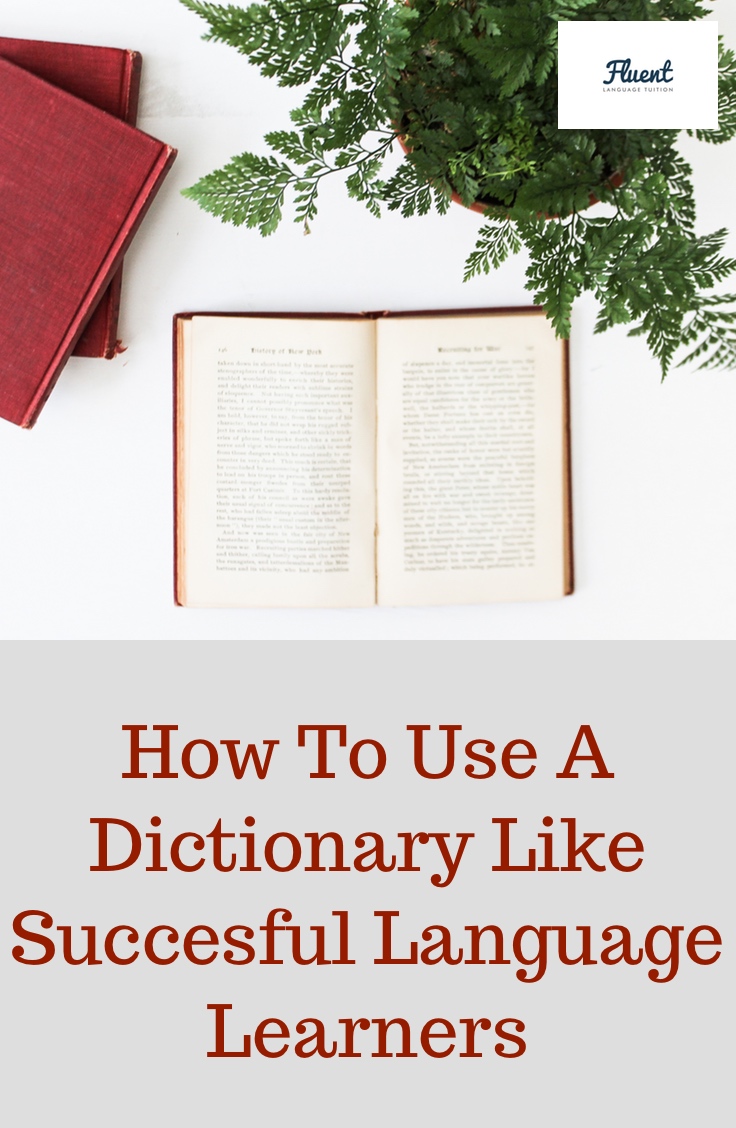No language learner should be far from a dictionary, ever. These days it's very tempting to look everything up in Google Translate, but with a few of the following choices you'll be way ahead.
What Makes a Great Dictionary?
Dictionaries come in all shapes and sizes. You can buy a tiny pocket book like the one I took to Sweden this summer. Or if you've got a big shelf, you'll find a 3 volume leather-bound edition to fill it. Some come with grammar guides, others come with phrasebooks.
And of course, paper is pretty 20th century these days so there's no way to ignore apps. Most likely you've got one or two on your smartphone right now.
For me, a good dictionary will have the following things available:
1. Grammar Details
I want to know what I am looking at. Is this word feminine? Irregular? Is there something else I need to know before I use it? Good dictionaries provide all that information in a few short letters. For example, popular choice Wordreference tells you lots of extras when you look up a word.
2. Examples in Use
After over 20 years of language learning, I have trained myself never to trust the first word that comes up. Remember that looking up a word is never guaranteed to mean finding the perfect word at first sight, so you should check how to use it and whether there aren't several meanings.
3. The Other Language
I like reverse-checking my words, so monolingual dictionaries aren't my thing. This is the quickest check you can find for making sure you are using the right word. Look up your dictionary result the other way round, if it doesn't deliver the one you were looking for then you are not done with your search.
My Recommendations: These Dictionaries Are Fantastic
Originally a project from a Munich University (in 1995!), LEO has grown itself to be the go-to dictionary for any German speaker. Its core language is German, so all language pairs are based on it. The strength of LEO lies in two-way search and the great forum articles that can point you in the right direction when the original dictionary answer doesn't seem right.
This is another German heavyweight - wiki-based babla has it all: 37 online dictionaries, games, tests, a fantastic community...and usage examples! Oh yeah. Bookmark now.
This offering from the TU Chemnitz in Germany is particularly good with collocations, telling you the most common ways that the word you found connects with others. So search for "cats" and you'll also find "it's raining cats and dogs". It's just been improved as well with a full supply of DGT Multilingual Translation Memory from the EU.
- The printed dictionary
You underestimate this big boy at your own risk, because a printed bilingual dictionary offers two aspects that the online world can't deliver on. It is portable and works without electricity or roaming charges. These Language Maps are even waterproof. Secondly, the printed dictionary will usually supply you with just a little bit more linguistic oomph and show pronunciation, every conceivable example, colour codes and a friendly paper smell too!
This is not just a dictionary, but also a translation search engine. Put in new vocab, and you'll see the many real uses in language materials.
The Best Dictionary for Any Language
You definitely can use Google Translate and get through any conversation in a foreign language just fine. Or you can go deep and start to make your dictionary the ultimate resource in your language learning arsenal.
When learning a foreign language, I believe that vocabulary is one of the absolute keys to helping you feel confident and stay on top of any conversation. You can learn all that grammar, but without knowing what to say you'll always feel stuck.
I've given a few hints above that will help you work with your dictionary and start making the most of it.


